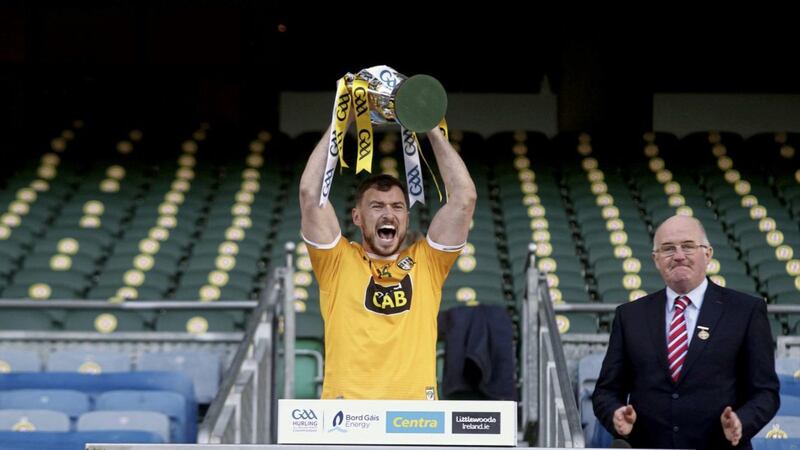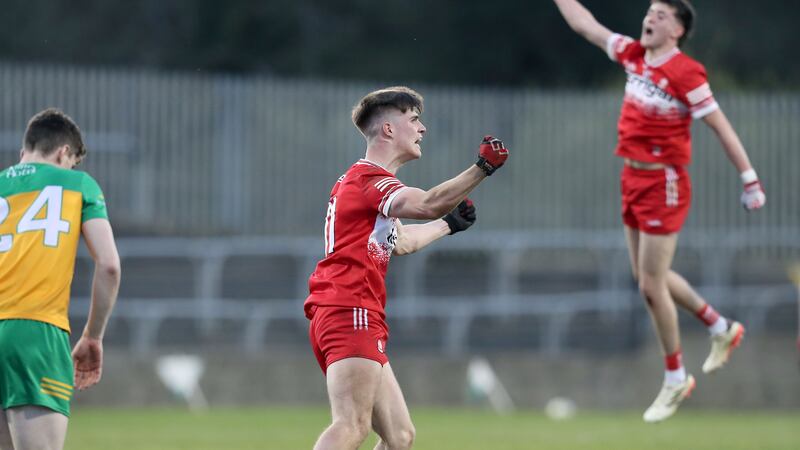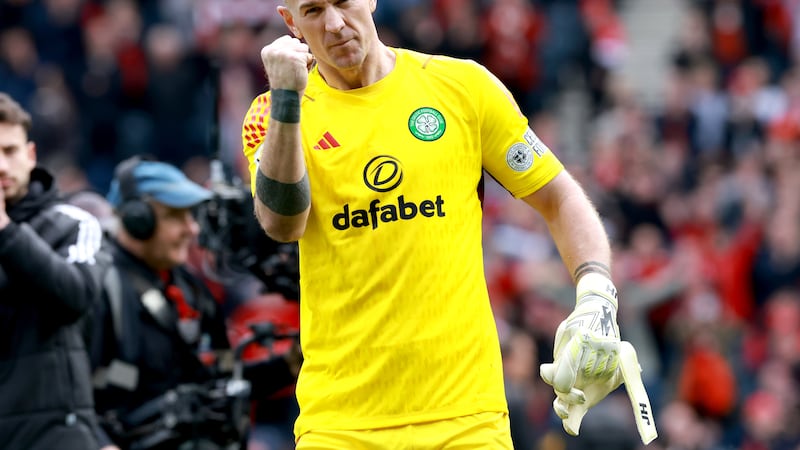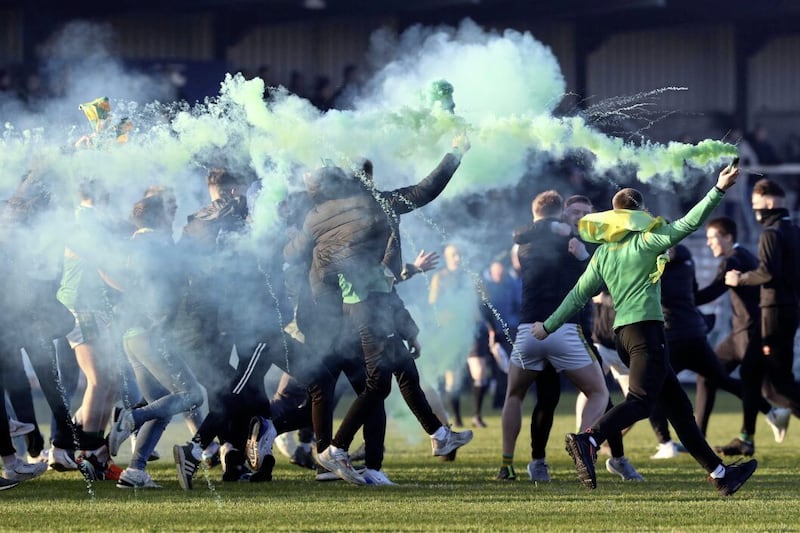There was a bit of a furore on Twitter last Sunday when RTÉ failed to broadcast the speech made by Conor McCann after the Antrim hurlers won the Joe McDonagh Cup.
No harm to the Saffron fans who were outraged, and I certainly don’t want to cause any offence to Conor McCann, but you cannot be serious.
As the captain of his county senior team, it can be taken as given that Conor McCann is a reliable and upstanding young man.
And as a reliable and upstanding young man it can be assumed that McCann’s speech was exactly the same as all the other speeches made by winning captains.
The GAA victory speech is the sporting equivalent of what a groom says at a wedding.
Duty bound to say his bride is beautiful and the bridesmaids are lovely, the groom must then thank everyone and everything who has ever existed. It’s always very predictable.
A winning captain’s speech is the same, only a lot more boring as there are never any good jokes or yarns.
Below is an abbreviated version of every victory address ever given at a GAA ground.
A few token words of Irish.
I’d like to thank our sponsors.
I’d like to thank our supporters’ club.
I’d like to thank our doctor.
I’d like to thank our physios.
I’d like to thank our backroom team.
I’d like to thank my family.
I’d like to thank all my girlfriends (okay I made that one up)
Now, three cheers for the losers, hip hip…
Last but not least, I like to give a special thank you to our manager (big cheer)
Finally, I’d like to thank you – the best supporters in the country (very big cheer)
Lift cup. Big roar.
And that’s it. That’s the winning captain’s speech.
It’s hard to believe it often seems to take more time than the match itself.
It’s a guaranteed anti-climax to what should be a riotous affair.
The GAA should do everyone a favour, namely the poor captains, and discontinue them immediately.
Because there is a better way.
When the winning captain is handed the cup – he has the option of saying no more than 25 words – and he is strictly forbidden from thanking anyone – dead or alive.
It’s difficult to fathom how so many customs and rules in the GAA have evaded deletion.
For example, while the GAA was willing to experiment with the forward mark – a radical, bold and inherently bad idea, we still have the referee’s mates performing umpire duties at the biggest and most important sporting fixtures of the year.
Often not the best at actually judging if the ball went between the posts, they are even less effective at providing any protection for the star full-forward who is getting casually lynched by the entire full-back line.
It is 2020. The GAA has an annual income of around €80m per annum.
It’s abundantly obvious that umpires should be referees.
But those four guys in the white coats are there because they know the referee. Bonkers.
But it gets worse. County games are 70 minutes and club games are 60 minutes. What is that about?
At a time when club players have never been stronger or fitter, they are participating in games where the ball is in play for about 30 minutes.
Yet, the madness continues.
The half-time break of 15 minutes. Nuts.
Think about it - 60 minutes of action, 15 minutes for the half-time break.
That’s a work-rest ratio of four to one. If it was a working day, it would be the same as getting two hours for break-times.
Moreover, there is research evidence which shows it is completely pointless.
The eminent sports physiologist Stephen Seiler conducted research where he sought to determine the optimal duration for high-intensity interval training.
Trained athletes did efforts lasting from five to 16 minutes.
A range of recovery times were tested. No performance benefits were produced by prolonging recoveries beyond two minutes.
Yet, we have footballers and hurlers probably starting to cool down and stiffen due to a 15-minute half-time interval.
And let’s not forget the long suffering TV viewers who are being subjected to a barrage of adverts and long-winded, repetitive punditry.
We need more action, shorter breaks and less analysis.
Also, around 100 years ago, it was considered a major achievement if a footballer could convert a 45-metre kick.
Back then, balls were made from pigskin. If the ball got wet, it was like kicking a pig.
A full century later, and we’re still using the 45m line.
Balls are lighter. Playing surfaces are vastly superior and we have specialist place kickers who dedicate huge swathes of their training time to kicking a ball off the ground.
It’s time a 50 became a 50 again.
Finally, I’d like to thank my uncle Hugh for giving me the idea for this column.
I’d also like to thank The Irish News for printing it.
Three cheers for The Irish News.
Most of all, I’d like to thank you – the best readers in the country for reading it – that is - if you’ve got this far.








